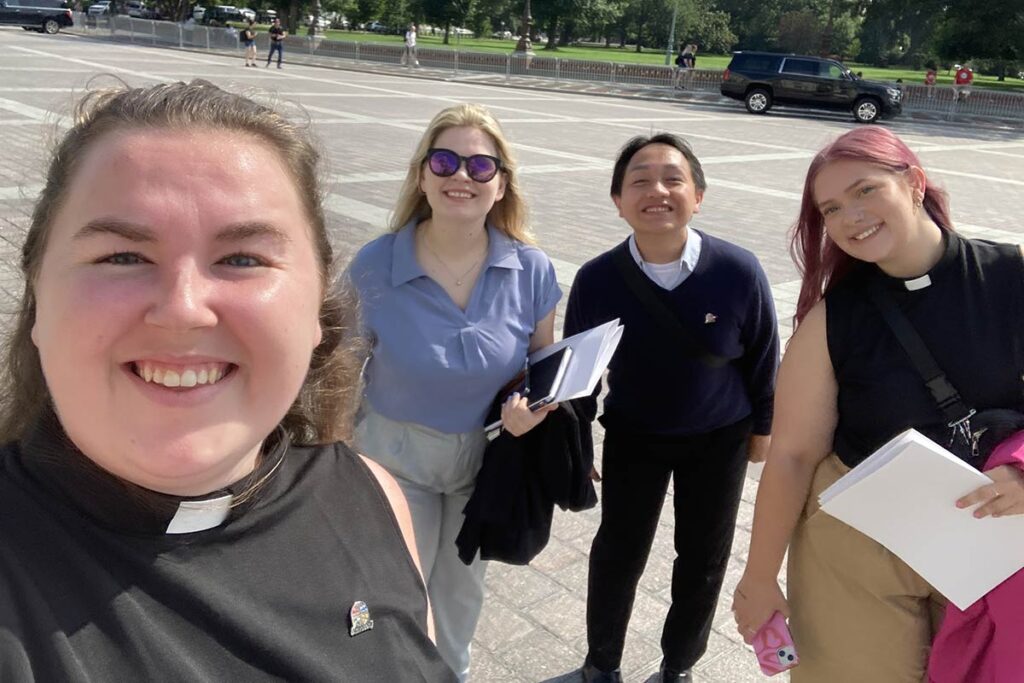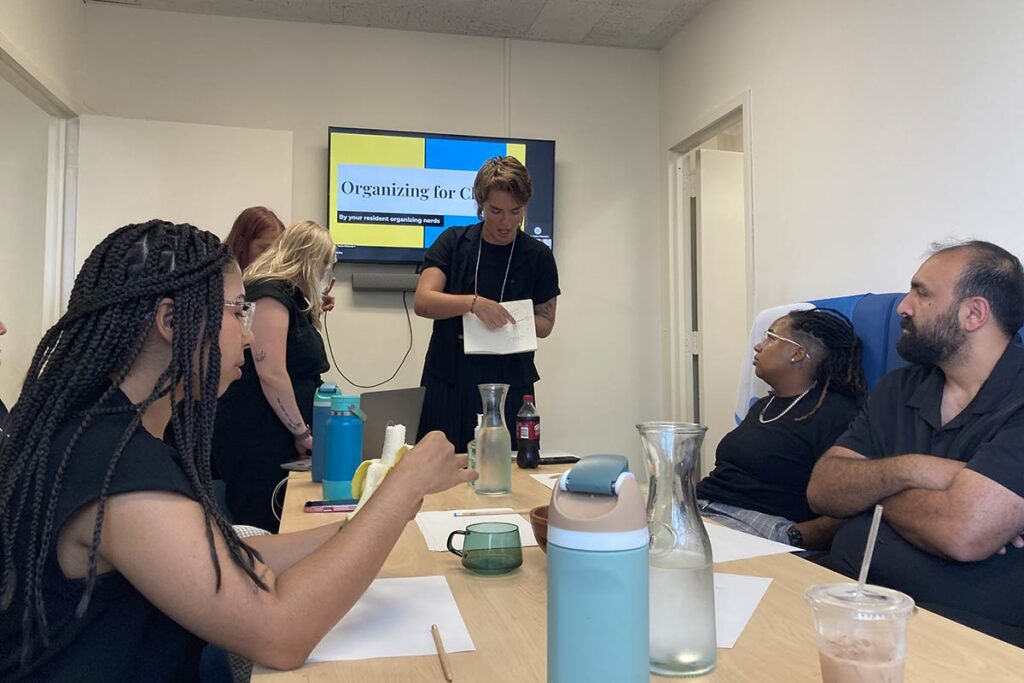Called to the Hill: LSTC Students Embody Public Church Through ELCA Advocacy Immersion

In spring 2025, MDiv students Hannah Peterson Megan Mong traveled to Washington, D.C. and New York City to participate in the ELCA Young Adults Advocacy and Policy Immersion. Their journey was more than a trip; it was a living embodiment of LSTC’s commitment to forming public church leaders prepared to advocate boldly for justice.
For Mong, the seeds of advocacy were planted in her work with disabled adults and long-term care nursing facilities. “I became acutely aware of all the hidden and explicit barriers to worship and community that disabled people face,” she shared. That awareness led her to LSTC—a place where, she said, “my view of Lutheranism could expand outside of the confines of a predominantly White, English-speaking experience I am comfortable in and have experienced for most of my life.”
Peterson, an MDiv student and Army veteran, felt equally drawn to LSTC’s emphasis on social engagement. “I always knew I’d become a pastor. While I was in the Army, I decided seminary was next, and LSTC was uniquely welcoming, and demonstrated care for public faith and social engagement.”
Both students brought their passion for justice to the national stage during the immersion experience. In Washington, D.C., Mong met with congressional staff to share stories about the intersections of climate change and healthcare, including the rural nursing facility she once worked in that had to absorb residents from other communities due to funding cuts. She also advocated for restoring SNAP benefits, reflecting on her own experience growing up food insecure. “Even just making it through the door of the Capitol and other government buildings to go tell our stories is a huge win,” Mong said.

Peterson came prepared to speak as a healthcare organizer and veteran. Her legislative meetings centered on mental health access and the connections between environmental and healthcare justice. “The immersion trip was centered around environmental justice, and there are many ways that healthcare and EJ work overlap and intersect,” she said.
The trip also included time in New York City, where participants met with representatives from the Lutheran World Federation and visited the Lutheran Office for World Community across from the UN Headquarters. “We worshiped and ate meals with ecumenical partners, toured the UN, and heard from LWF Youth Peacemakers,” Peterson recalled. “Our church is a body which is constantly envisioning the Kin-dom of Heaven… while living thoroughly in today as and with those who suffer, like Jesus.”
What stood out to both students was the power of interconnected stories. “Something I keep returning to is how our stories were all interconnected,” Mong said, recalling conversations about environmental justice that spanned from Puerto Rico to Oregon’s coasts. For Peterson, story-sharing was not just a strategy but a spiritual practice: “I tell my story, you tell yours, I hear parts of myself and the Holy reflected in moments of yours, I get clearer in my own need for my own liberation and yours from the exchange of stories.”
Their experiences affirmed what both students had been learning in the classroom. Mong cited coursework with Dr. Marvin Wickware and Dr. Karri Alldredge that focused on intersectionality and theological grounding for public witness. “My Lutheran Confessions and Epic of Creation classes had us examine ELCA Social messages and statements that help guide our denomination in public witness.”
Peterson highlighted Dr. Wickware’s Public Church course, as well as classes on emotional justice and Liberation Theology: “We are called not to hide our pain and gifts away, but to bear those to our neighbors and be church in the world.”
As students rooted in the public church curriculum, both Mong and Peterson offered advice for young adults eager to get involved: find a local political home and connect with the ELCA’s Young Adult Networks. “We only have the power to enact our values in the world when we work together,” said Peterson.
Looking ahead, Mong will soon begin her internship, bringing all she has learned into a concrete ministry context. “In my future ministry I will continue my storytelling, while connecting people to avenues of advocacy both within the ELCA and LWF and outside of it,” she said. Peterson, now Chair of the Healthcare Taskforce of The People’s Lobby, is building a community around shared stories and collective liberation: “Exactly what each of us needs to heal… overlaps with exactly what we are energized and love to do, and overlaps also with exactly that which the movement needs.”
Their witness is a powerful reminder of what it means to be a public church: one that refuses to remain silent, steps boldly into the hard places, and dares to dream of a just world.